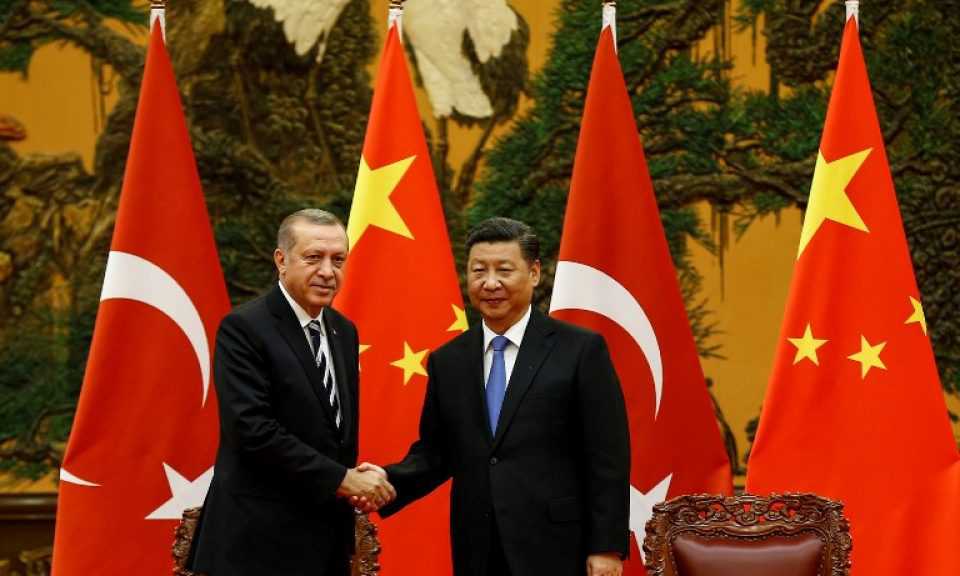Erdogan sees China as a partner for the future
19 December, 2018

“We are facing an economic war. Do not worry, we will win it,” Turkish President Recep Tayyip Erdogan said during the presentation of his 100-day action plan in August, as a currency crisis and economic showdown with the United States reached its height.
Erdogan declared that China was the country’s economic partner of the future.
That call resounded with Ismet Oztan?k, the chairman of Asiability-Turkey, which seeks to capitalize on China’s Belt and Road Initiative and build new bridges linking the republic on the Bosphorus to the South China Sea.
“The Turkish embassy in Beijing is finalizing the launch of a working platform to bring business people in the private sector from China and Turkey together,” Oztan?k told Asia Times.
The platform, which will soon be publicized, is expected to enhance mutual investments.
In August, Oztan?k announced that the China Entrepreneur Club – led by Jack Ma, the chairman of Alibaba – was considering a visit to Turkey to check out investment opportunities. It now rests on the Turkish private sector and quasi-government bodies to assemble the relevant counterparts and pave the way for a delegation of billionaires.
A lender and investor
The position of Turkey on the global stage has improved since Erdogan announced he would seek other partners over the summer. The murder of Washington Post columnist Jamal Khashoggi by Saudi operatives in Istanbul has put Turkey in a renewed position of influence, namely with the United States.
But the appeal of China has not subsided – it is gaining influence as a lender and as an investor.
In July, Turkey borrowed US$3.6 billion from the Industrial and Commercial Bank of China for investments in the energy and transport sectors.
A debt-driven approach is bringing the two countries closer, with Chinese investments in Turkey on the rise. Between 2011 and 2016, the Bank of China provided $2.5 billion in financing for local projects and institutional companies in Turkey and more is expected to come.
Over the past year, the number of Chinese companies operating in Turkey rose to more than 1,000. Sixteen of them are among the top 500 companies in China, including Huawei and Bank of China.
As a testament to the growing partnership, the Turkish Industry and Business Association in October was chosen to host the Belt & Road Industrial and Commercial Alliance (BRICA) summit, in cooperation with the China Federation of Industrial Economics.
Chinese energy
The largest direct investment of China at present is the EMBA Hunutlu Thermal Power Plant in the Turkish city of Adana, which is expected to contribute significantly to the country’s energy demands.
Consortium investment for the coal-fired plant, a joint venture led by China’s Shanghai Electric Power, has reached $1.7 billion, the Chinese embassy in Ankara told Asia Times. EMBA was granted a 49-year generation license for Hunutlu from the Turkish Energy Market Regulatory Authority, and China holds just over 78% of the shares.
Chinese investors have also expressed interest in the infrastructure, electronics, tourism, logistics and real estate sectors in Turkey. Beijing has become the prime contractor for mega projects such as the Ankara-Istanbul high-speed rail, the Salt Lake Underground Natural Gas Storage Project and the Soda Ash Production Complex in Ankara’s Kazan district.
Since 2001, Chinese companies have amassed project contracts in Turkey worth more than $19.8 billion in total. The two nations are now negotiating for the construction of Turkey’s third nuclear power plant.
“We want to have a new momentum in relations between China and Turkey by completing these negotiations within 2019,” Emin Onen, Turkey’s ambassador to Beijing, wrote in an article for Global Times to emphasize the importance of the current nuclear talks.
Looking to the future, Turkish officials say they will also create special industrial zones – for Chinese investors only.
Beyhan Incekara, an assistant professor of international trade at Istanbul Kultur University, says such steps are mutually beneficial for Ankara and Beijing, with China-led transportation projects in Turkey constituting the most substantial area of bilateral economic relations.
“The US-China trade war is bringing two countries closer. Economic cooperation is important for China and Turkey so this is a win-win situation,” Incekara told Asia Times.
Beijing, the professor believes, has the potential to overtake Europe as Turkey’s top trade partner.
